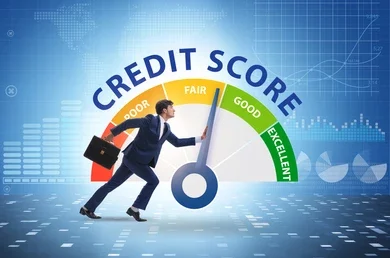Are you tired of being denied for loans, credit cards, and mortgages because of a low credit score? Are you ready to take control of your financial future and boost your credit score? Look no further! This comprehensive guide will break down the basics of credit scores, including how they are calculated, how to improve them, and common misconceptions.
Table of Contents
- What is a Credit Score?
- How is a Credit Score Calculated?
- How to Improve Your Credit Score
- Common Misconceptions
What is a Credit Score?
A credit score is a numerical value that represents an individual’s creditworthiness. The score is based on credit history and is used by financial institutions, landlords, and even potential employers to assess risk and make decisions about lending money or approving applications. The most commonly used credit score is the FICO score, which ranges from 300 to 850. The higher the score, the lower the risk of defaulting on a loan.
How is a Credit Score Calculated?
Credit scores are calculated using a complex algorithm that takes into account a variety of factors, including payment history, credit utilization, length of credit history, and types of credit used. The most important factor is payment history, which accounts for 35% of a FICO score. It is crucial to make payments on time and avoid late or missed payments. Credit utilization, which is the amount of credit used in relation to the amount available, accounts for 30% of the score. It is best to keep utilization low, ideally below 30%. Length of credit history and types of credit used each account for 15% of the score.
How to Improve Your Credit Score
Improving your credit score is possible with effort and patience. Some strategies to improve your credit score include:
- Paying bills on time
- Keeping credit utilization low
- Maintaining a mix of credit types
- Disputing errors on your credit report
It is important to check your credit report regularly to ensure that there are no errors that could be negatively impacting your score. You can request a free credit report from each of the three credit bureaus (Equifax, Experian, and TransUnion) once per year at AnnualCreditReport
Common Misconceptions
There are many misconceptions about credit scores, including:
- Closing old credit accounts can improve your score
- Checking your credit report will lower your score
In reality, closing old credit accounts can actually lower your score by decreasing the length of your credit history. And checking your credit report will not lower your score, it is considered a “soft inquiry” and does not affect your score.
In conclusion, understanding and managing your credit score is essential to achieving financial stability and achieving your goals. By following the strategies outlined in this guide and dispelling common misconceptions, you can improve your credit score and take control of your financial future.
Sources:
https://www.myfico.com/credit-education/whats-in-your-credit-score/
https://www.nerdwallet.com/blog/finance/credit-score-basics-how-to-improve/

